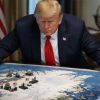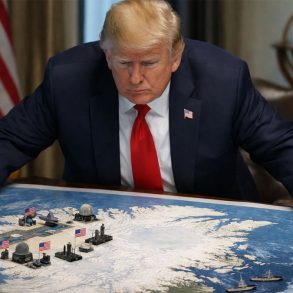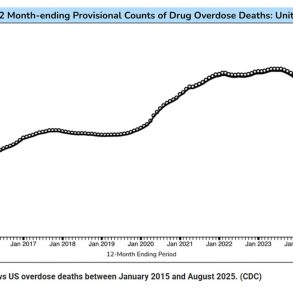Russian President Vladimir Putin has agreed to “immediately” begin negotiations to end the ongoing war in Ukraine. The announcement follows what Trump described as a “lengthy and highly productive” phone call with the Russian leader. According to Trump’s statement on Truth Social, the two leaders also agreed to visit each other’s nations and work closely on diplomatic efforts moving forward.
“We agreed to work together, very closely, including visiting each other’s Nations,” Trump posted. “We have also agreed to have our respective teams start negotiations immediately, and we will begin by calling President Zelenskyy, of Ukraine, to inform him of the conversation, something which I will be doing right now.”
Trump said he had instructed Secretary of State Marco Rubio, CIA Director John Ratcliffe, National Security Advisor Michael Waltz, and Ambassador Steve Witkoff to lead the negotiations. He also indicated that he would personally call Ukrainian President Volodymyr Zelenskyy to inform him of the conversation and initiate discussions from Ukraine’s side.
Throughout his campaign and presidency, Trump has repeatedly claimed that he could end the war in Ukraine within 24 hours. He has argued that had he been in office, Russia would never have invaded Ukraine in the first place. Trump has also suggested that a peace deal could be reached through direct engagement with Putin, potentially allowing Russia to retain control over some of the territories it has captured.
During his campaign, Trump frequently repeated the promise that he could swiftly resolve the war. “If I were president, this would not have happened,” he has asserted on multiple occasions. “And if I get elected, within 24 hours, we will have a deal.” Critics have often questioned the feasibility of such a timeline, but Trump has maintained that his unique negotiating skills and relationship with Putin would be the key to a resolution.
Trump’s approach contrasts with the Biden administration’s stance, which has supported Ukraine through military aid and diplomatic efforts while maintaining pressure on Russia through sanctions. In January, Trump even floated the idea of imposing high levels of tariffs and sanctions on Russian goods if the war did not end soon, stating, “I will have no choice but to impose high levels of taxes, tariffs, and sanctions on anything being sold by Russia to the United States, and various other participating countries.”
Russia’s War in Ukraine
Russia invaded Ukraine in February 2022, claiming security concerns and historical ties to the region. The war has since devastated Ukrainian cities, led to massive casualties, and drawn global condemnation. Western nations, including the U.S., have provided Ukraine with extensive military and economic support, while Russia has continued its offensive despite setbacks and heavy losses.
Trump, in his Truth Social post, reflected on the historical relationship between the U.S. and Russia, stating, “We both reflected on the Great History of our Nations, and the fact that we fought so successfully together in World War II, remembering, that Russia lost tens of millions of people, and we, likewise, lost so many!” He added that their discussion emphasized the need to stop the ongoing destruction, saying, “We each talked about the strengths of our respective Nations, and the great benefit that we will someday have in working together. But first, as we both agreed, we want to stop the millions of deaths taking place in the War with Russia/Ukraine.”
Possible Terms and Tradeoffs
If negotiations are indeed set to begin, key questions arise: What would a potential peace deal look like? What compromises, if any, would the parties be willing to make?
One major sticking point is territorial control. Russia currently occupies significant portions of eastern Ukraine, including Crimea, which it annexed in 2014. Ukraine has insisted that any peace deal must include a full withdrawal of Russian forces, while Moscow is unlikely to agree to such terms without significant concessions.
Another factor is NATO and Ukraine’s future security arrangements. Putin has long opposed Ukraine’s aspirations to join NATO, and any deal could include conditions limiting Ukraine’s military alliances. Trump’s allies, including Secretary of Defense Pete Hegseth, have already suggested that returning Ukraine’s borders to pre-2014 lines is “unrealistic.”
Economic sanctions and Western military support to Ukraine are also crucial factors. If the U.S. and its allies push for peace talks, they may have to consider easing some sanctions on Russia—a move that would likely spark controversy. Similarly, the fate of Western military aid could play a role, with Russia potentially demanding a halt to weapons shipments in exchange for a ceasefire.
Reactions from Key Players
The Kremlin confirmed that Putin and Trump had spoken, with Russian state media reporting that Putin invited Trump to visit Moscow. Kremlin spokesperson Dmitry Peskov stated, “The Russian president invited the US president to visit Moscow and expressed his readiness to receive American officials in Russia in those areas of mutual interest, including, of course, the topic of the Ukrainian settlement.”
Meanwhile, Ukrainian President Volodymyr Zelenskyy acknowledged his conversation with Trump, calling it “meaningful” and focused on “opportunities to achieve peace.” Zelenskyy posted on social media, “No one wants peace more than Ukraine. Together with the U.S., we are charting our next steps to stop Russian aggression and ensure a lasting, reliable peace. As President Trump said, let’s get it done.”
The announcement also follows the return of Marc Fogel, an American detained in Russia since 2021, which Trump claimed was secured through direct negotiations with Putin. While details of the deal remain undisclosed, Trump thanked Putin for Fogel’s release, stating, “I want to thank President Putin for what he has done.”
What’s Next?
While Trump’s claim has generated significant attention, neither the Biden administration nor other key international players have confirmed that peace talks are officially underway. The Kremlin has acknowledged the call with Trump but has not provided details on any concrete steps toward negotiations. Ukrainian President Zelenskyy, meanwhile, has expressed a willingness to explore diplomatic solutions but remains firm that Ukraine must retain its sovereignty and territorial integrity.
If negotiations do proceed, they will face significant hurdles. The history of failed peace talks and deep-seated mistrust between Russia and Ukraine suggests that any resolution will require extensive diplomatic maneuvering. Whether Trump can truly deliver on his promise of a swift end to the war remains to be seen.
For now, the world watches as Trump positions himself as a potential dealmaker in one of the most complex conflicts of the 21st century.
NP Editor: The Trump Administration knows that Putin needs to protect his only warm water navy port, it is vital to Russia’s defense. The history of the area is important, especially the fact that in the areas taken, the people are Russian speakers, an area that was granted to Ukraine by the Soviet Union. The Biden Administration was clueless in every respect. Putin will get what he absolutely needs and may even give back some of the territory he currently owns, there will be concessions on both side.
While this means that Russia wins in certain respects, it allows Trump to ensure that future wars don’t begin.








